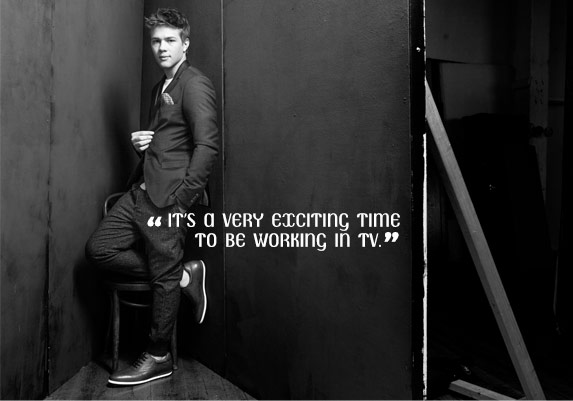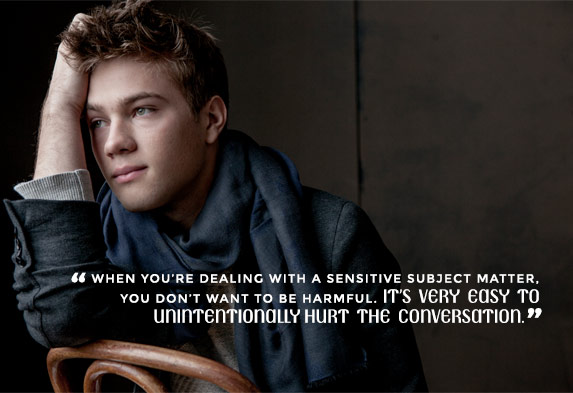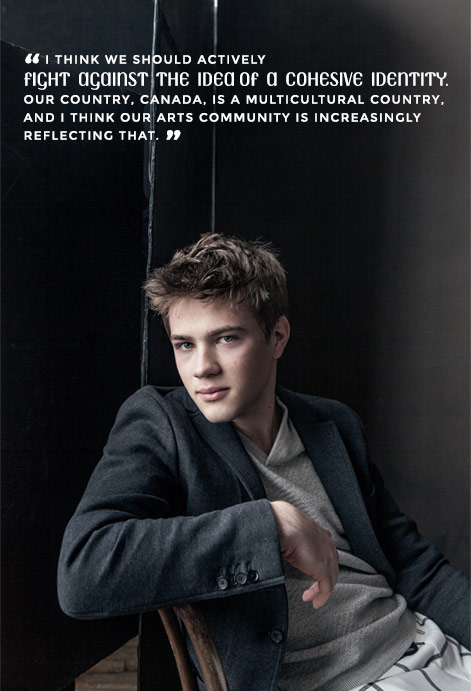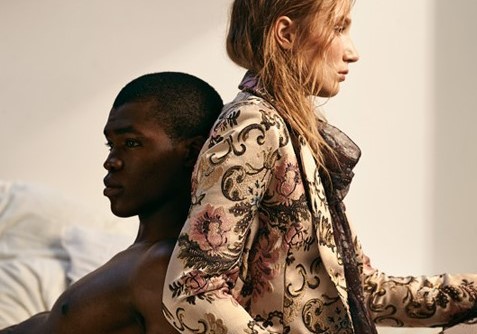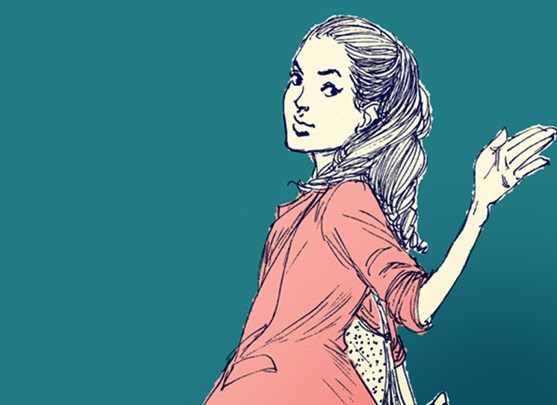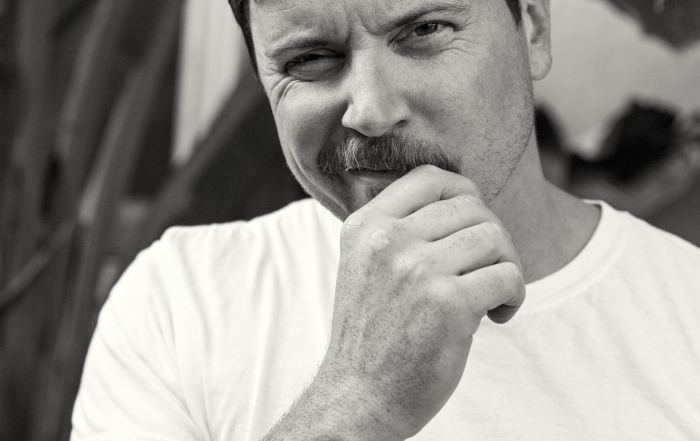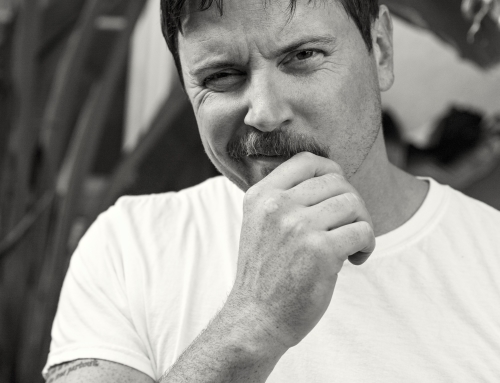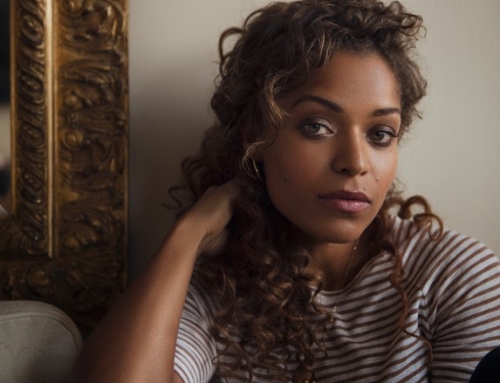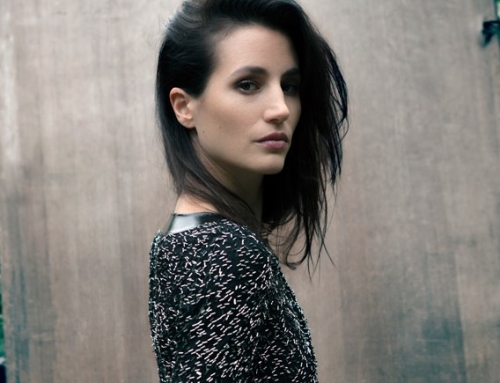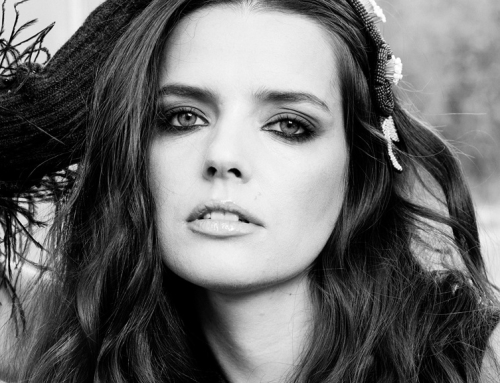“It’s a very exciting time to be working in TV,” declares Connor Jessup. One part of America Crime’s stellar ensemble cast, Jessup’s role in season two of the ABC drama, takes aim at hot button issues, and that—for Jessup and television audiences—is very exciting, indeed.
As it did during its Golden Globe-nominated, Emmy award-winning premiere season, American Crime makes a study of cause and effect in season two; this time around, with Jessup’s Taylor Blaine lined up as the first domino in a collapsing chain.
“It’s an opportunity to examine modern American society,” comments Jessup on the show’s formula. And this season, it starts with a familiar premise: the haves and the have nots.
Taylor Blaine feels like an outcast. A junior at an elite private high school in Midwest America, the teen is, in the eyes of his privileged peers, the academy’s conspicuous financial aid student. Taylor’s outsider status takes form in introverted tendencies that have him flying under the radar, until he raises accusations against members of the school’s basketball team, alleging a brutal sexual assault to have taken place at another student’s party. Skip forward to Taylor at the centre of a hateful social media trend, a controversial school transfer and an unravelling front page local news story, and you have a probing narrative by Oscar-winning screenwriter, John Ridley (the show’s creator and executive producer), intent on exposing the gutting injustices bred by socioeconomic disparity and the misguided compliancy of those protecting the outdated ideologies that continue to beget modern inequality.
“Even before the incident, he’s struggling with identity,” says Jessup of his character. “He’s struggling with history, he’s struggling with his mother…he’s struggling with what opportunities he’s going to literally and figuratively afford. He’s a teenager, he’s struggling with stuff…and would be too, [even] if this had never happened to him. It’s just an awful thing to have the well poisoned in that way.” As with his breakout role in last year’s Closet Monster (winner of Best Canadian Feature Film at the 2015 Toronto International Film Festival), which saw Jessup cast as a small-town boy battling between his own sexual identity and an ultra-masculine father, the Canadian actor’s turn as Taylor Blaine, proves—once again—he is fluent in internal turmoil.
Intelligent and reflective, Jessup plays the role of Taylor with an inwardly-directed sensitivity that shoulders the weight of his character’s crisis of identity. He authentically grapples with issues of social status, sexual orientation, prejudice and bullying, achieving an evocative performance and contemplative interpretation of the series’ veracious narrative.
At 21-years old, Jessup holds his own opposite veteran screen stars, including Felicity Huffman, Timothy Hutton and Lili Taylor. The actor has built a particularly special bond with the latter, Taylor, who plays his mother in the series. “Words fail me,” gushes Jessup when asked about Taylor’s contribution to both the series, as well as his own performance. “She brings so much forward momentum, dignity and emotion to every single scene. She is the heart of the season in almost every way.”
With its finale scheduled for Wednesday, March 9th, season two of American Crime has reached a boiling point. Below, Jessup takes us inside the drama and shares his thoughts on the responsibility attached to playing a narrative catalyst, within a series entrenched in reality.
The plot this season deals with some very real social issues, including prejudice and bullying within schools. Have you had much feedback from teenagers about their own experiences in relation to your character’s situation?
Yeah, actually. I’ve gotten some very affecting emails and messages, either privately or on Twitter, expressing exactly that, that they’ve been through something similar… or in many cases, something worse, unfortunately. It’s one thing to get cast in the show and read the studies and look at the numbers and be overwhelmed by the scope of the problem, but to hear people’s specific stories has been really overwhelming, in a way that even the shooting of the show wasn’t. But, it’s also been really gratifying.
It’s a lot of pressure to take on issues that are not only sensitive, but rarely discussed. Did you get a sense of that?
When you’re dealing with a sensitive subject matter, you don’t want to be harmful. It’s very easy to unintentionally hurt the conversation. So, the fact that is seems like, for now, we haven’t done that…that just floods me with relief.
The storyline is quite dark, was it difficult at all to shake off the role after the cameras stopped rolling?
That’s a hard question to answer. Sometimes, yes…but it’s a TV show, you’re on set, you’re shooting things out of order, you’re working with 80 people on any given day, so it’s never—at least for me—too hard to remember the artifice of it.
How was it working opposite Lili Taylor? She’s such an incredible actress.
I need to find more ways to say: “Lili Taylor is a genius.” It starts to sound trite when you’re reading it interview after interview. She’s the best actor I’ve ever worked with. She gave me, without even meaning to, so much… so so much. And, despite what you might think because of the subject matter, we really had a lot of fun… or at least I had a lot of fun working together with her. It felt more playful, more give-and-take and more alive than anything I’ve ever done with anyone.
She plays your mother on the show; did any of that maternal nurturing carry over to your personal interactions on set, while prepping for scenes?
I wouldn’t say “maternal nurturing.” So, especially when I was younger, it was very easy for people to treat me like I was the “kid,” and to her credit, as far as my experience, she never did. She was helpful; she had advice and she was encouraging, but she was never patronizing… she was always game. And, I am forever in her debt because of it.
Did you ease into the established rhythms of the core cast members pretty easily, when you joined them on set this season?
It was weirdly easy. It was kind of the best of both worlds because they had all worked together before, not only the cast, but the crew, so they worked out the kinks and had a rhythm, but because everybody was coming back as new characters, there was this feeling that everyone was in the same position… trying to figure out what the season is, who they are… so it didn’t feel like jumping into the river midstream. And people were just really sweet and welcoming. All the anxiety I had was not about that; it was about the specifics of doing the part.
These days it seems like staying at home and watching TV is as good as going to the movies, based on the caliber of shows out there, such as American Crime. Do you agree with those that say we are in the Golden Age of television?
Yes… the only reason I hesitate is because it’s such a common slogan. The obnoxious 16-year-old contrarian in me feels like it pains me to agree. But, it is, and has been for a while. If you compare the best five shows now, to the best five shows that were on in 1995, I think you would see a significant difference.
You recently did a great film, Closet Monster, which won best Canadian Feature at TIFF last year, is working on Canadian projects important to you as an actor. In other words, do you consciously want to nurture a career back home, working with local talent, as well as pursuing jobs across the border in Hollywood?
Absolutely! I’m Canadian. [laughing] Toronto is my home, and every time I go away, I come back feeling like it’s more my home. I have no urge to leave here. I feel like there is an increasingly exciting indie film scene here. It’s a really interesting and exciting time to be in this city.
On that note, what are your thoughts on last January’s article in The New York Times entitled, “With the Rise of Justin Trudeau, Canada Is Suddenly … Hip?”
I don’t have too many serious thoughts on it. [laughing] It doesn’t seem like it’s worth an enormous about of anger. Obviously, it’s a little condescending, but it makes me laugh, more than anything. I don’t think it surprises anyone. I can’t imagine that anyone read that article and was shocked at how Americans think of Canada… it’s kind of obvious, whether it’s in arts and culture or anything. I can’t find it in me to get too indignant about it. [laughing]
Fair enough! On the topic of the Canadian arts scene, what would you say is unique about it?
I always find, when people talk about the Canadian art community, it reeks a little bit like a reaction against the American identity. It’s less the desire to define ourselves, than to define ourselves against the States, which I have no interest in. Someone who has done much more thinking and research about it would be able to put an image to the Canadian identity or the Canadian arts identity, but I don’t see it. I just see a growing number of individuals, doing individually very exciting things.
That’s a good way of looking at it, makes sense.
Just to clarify, that’s not a slight on Canada… that’s the best endorsement I can think of. I think we should actively fight against the idea of a cohesive identity. I think Canada…and I’m not the first one to say this, obviously… I think that our identity comes from, well, the old joke is that our identity is that we have no identity. Our country, Canada, is a multicultural country, and I think our arts community is increasingly reflecting that. And that is the identity… if you wanted one.








